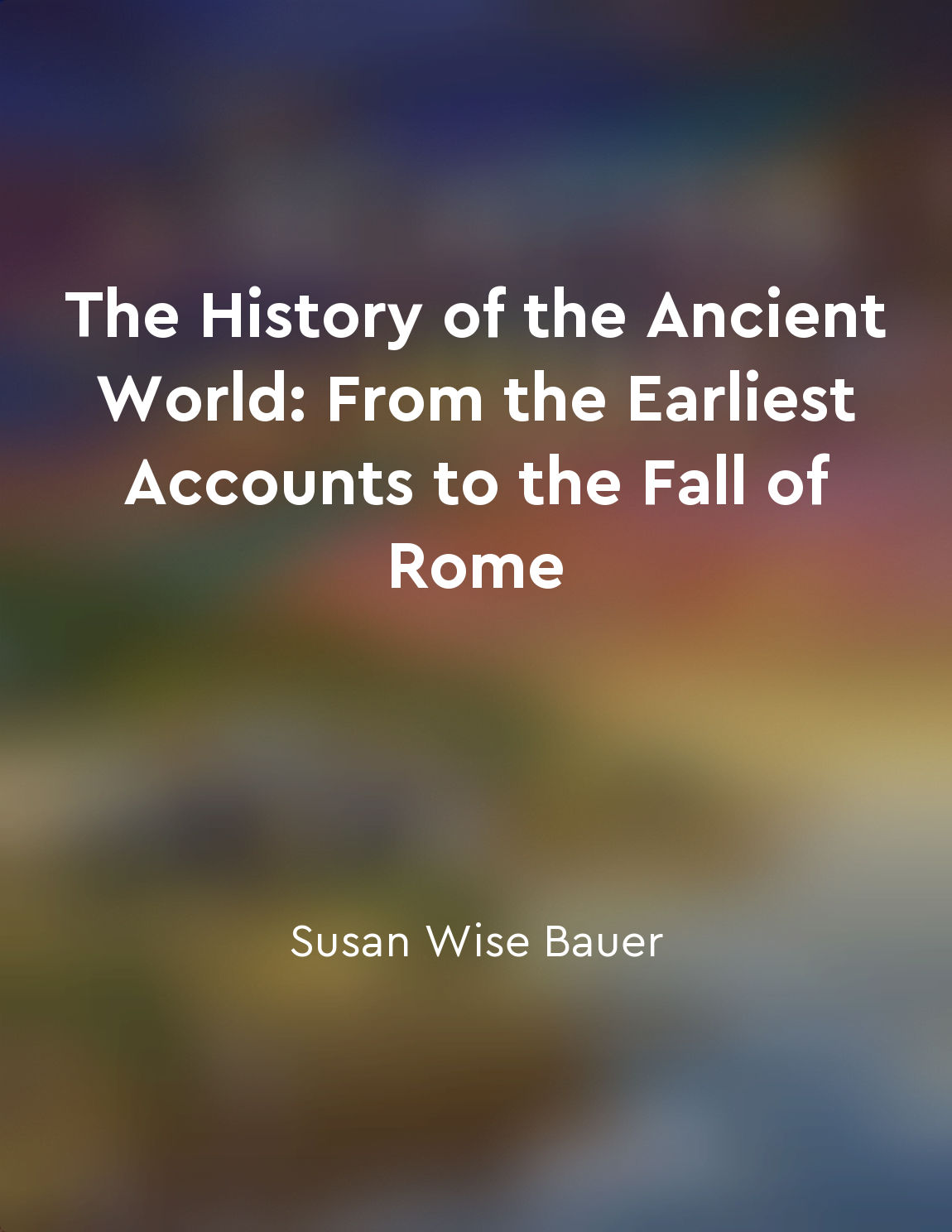Psychological effects of prolonged crisis from "summary" of The Fate of Rome by Kyle Harper
The prolonged crisis that enveloped the Roman world in the third century had profound psychological effects, leaving a legacy of trauma and anxiety that would endure for generations. The constant threats of invasion, civil war, and economic collapse created a climate of fear and uncertainty that weighed heavily on the minds of ancient people. The breakdown of traditional social structures and the erosion of trust in institutions eroded the sense of security that had once characterized Roman society. As the fabric of the empire frayed, individuals were forced to confront the fragility of their world and their own mortality. The relentless cycle of crisis and instability took a toll on mental health, leading to a sense of helplessness and despair. The specter of violence and hardship loomed large, casting a shadow over daily life and shaping the way people viewed the world around them. The experience of living through such tumultuous times left a deep imprint on the collective psyche of the Roman populace. The trauma of the third century crisis would reverberate for centuries to come, influencing the way subsequent generations understood themselves and their place in the world. The scars of this period can be seen in the literature and art of the time, which often reflected the anxiety and uncertainty that pervaded Roman society. In the face of such overwhelming challenges, individuals sought solace in religion, philosophy, and community. These sources of support provided a sense of meaning and purpose in a world that seemed devoid of both. By banding together and holding fast to their beliefs, people were able to weather the storm of the crisis and emerge with a renewed sense of resilience and determination. The psychological effects of the prolonged crisis were far-reaching and enduring, shaping the course of Roman history in ways that would have lasting consequences. The legacy of trauma and anxiety left by this period serves as a reminder of the fragility of civilization and the resilience of the human spirit in the face of adversity.Similar Posts
Exercise discipline in thoughts and actions
To exercise discipline in thoughts and actions means to cultivate self-control and mindfulness in our mental and physical activ...
Practice humility and modesty
It is essential to remember that we are all part of a larger whole, and no one person is superior to another. By practicing hum...
The importance of prayer and worship in spiritual growth
Prayer and worship are essential components of spiritual growth. Through prayer, we communicate with God, expressing our though...
Inequality and its consequences
The deepening divide between rich and poor in the Roman Empire was not merely a moral failing or a social concern—it was a dyna...
Connection between environment and society
The ways in which societies have shaped their environments and, in turn, been shaped by them, form a central theme in the histo...

Study the construction of monumental architecture and engineering feats
To fully comprehend the ancient world, it is essential to delve into the remarkable achievements in architecture and engineerin...
Secrets: Dark secrets threaten to unravel everything
In the shadows lurk secrets so dark they threaten to tear apart everything we hold dear. These hidden truths have the power to ...
